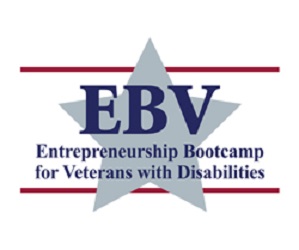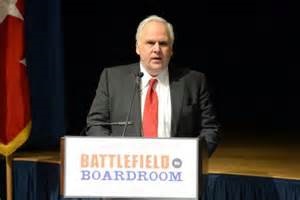By Debbie Gregory.
It seems that you can’t watch an hour-long news program without the mention of at least one of many hardships Veterans are facing. Along with VA scandals, there are struggles with PTSD, unemployment, homelessness, and underemployment. These societal ills have scourged all generations of Veterans, and are taking an extreme toll on the Post-9/11 generation. But from pain and discomfort, the strong usually seek ways to improve their situation. It is for these reasons that Veterans are 45% more likely to seek self-employment through entrepreneurial ventures that their non-Veteran peers.
But Veterans aren’t just shucking off their uniforms and conforming to life in business suits. They are taking their military experience with them into entrepreneurship, and getting positive results. Many in the business world are now looking to Veteran business owners as examples of the ideal business owner. Here are a few examples of why:
- Efficiency– It is commonly joked about that the most effective military leaders are the ones who are free to goof around on their computer all day. While we know that this isn’t true, the culture of military leadership is to prioritize tasks and delegate work as needed. Veteran business owners are more likely to heighten efficiency by delegating tasks, freeing them up for more critical tasks.
- Leadership– Everyone in the military answers to somebody else, and at some point in their career, most enlisted personnel have others below them. Taking and giving orders is a skill, just like anything else, and Veterans have had some of the best training around. Those with military leadership experience have the conditioning to make important decisions and assign tasks in a manner that can instill confidence from their employees.
- Team Building– Veterans know that the key to accomplishing any mission is to have all members of their team working together, as one unit. It doesn’t matter if that mission is securing a building, cleaning the workspace, or meeting a sales quota, the principles are all the same, and Veterans have been conditioned with the mentality to apply that principle to any task.
- Selling Commitment– Most living things instinctivelydo whatever they can to preserve their lives. Service members rush towards danger. That’s not by accident, that’s by mental conditioning and by being sold on a commitment to your comrades, to your unit, and to your country. There are no better cheerleaders and brand sellers than military personnel and Veterans.
- Gathering Intel– This is an attribute that is often overlooked. But because of the thought process involved with immersing one’s self into battle, Veterans have been conditioned to study the field, know the rules of engagement, and keep a constant tally on their assets. This type of thinking is second-nature to those who have served, and comes in handy when developing and carrying out a business plan.
Veteran business owners apply these same skills to their businesses. There are numerous other skills and attributes that Veterans picked up through their military experience that contribute to their success as business owners. With the right resources and the right mindset, Veterans know that they can accomplish anything.
The Veteran and Military Business Owners Association (VAMBOA) is a non-profit business trade association that promotes and assists Veteran Business Owners, Service Disabled Veteran Owned Businesses (SDVOB) and Military Business Owners. Small businesses are the backbone of our economy and responsible for job generation. That is why VAMBOA provides its members with Business Coaching, Contracting Opportunities, a Blog that provides information, Networking contacts and other resources. Membership is FREE to Veterans. Join Now!
VAMBOA: Five Examples Why Veteran Are Successful Business Owners: By Debbie Gregory











